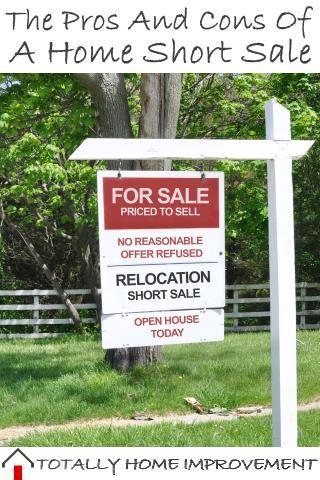
Back in 2007, when the financial industry collapsed from underneath the American economy, dragging down millions of Americans with it, a lot of people became wary of investing their money. People started to save any extra money they had, going to extra lengths to cut costs and pinch pennies. As people lost their jobs and unemployment spiked, the stock market plummeted as more investors pulled out their money. But lately the economy is showing new signs of strength, the numbers are usually getting better instead of worse, and people are beginning to think about investing their hard earned money back into the stock market. However, not all investments are good ones, and it can be a challenge learning to be able to tell the difference. One kind of investment that a lot of people are eyeing is the short sale.
However, a short sale in the investment context is different from the short sale in the real estate context. They are the same term for two different, but related, concepts. Selling or buying a home or other property through a short sale has both advantages and disadvantages.
Below are some things you should know about short sales before deciding to invest your money in this way or buy or sell a home in this way.
What is a stock short sale?
A short sale is defined as a “sale of securities or commodity futures not owned by the seller (who hopes to buy them back at a lower price).” In other words, when you engage in a short sale, you are betting that the price of the stock will fall. You are betting against it essentially. For example, if an orange juice stock costs $12 today, but you think it will cost $6 tomorrow, then you could engage in a short sale to take that bet.
What is a real estate short sale?

According to athomesense.com, in the real estate context, “short sales are sales made by owners who otherwise can’t afford their homes and, rather than accept foreclosure (and the massive hit to their credit score), work with the bank to sell their home at a lower price.” There are certainly some advantages to engaging this kind of short sale, but there are disadvantages as well.
Is it a good choice for a buyer to purchase real estate through a short sale?
Although the buyer can get access to better homes for lower prices through the short sale market, there are some things that the buyer should think about. Any improvements that are needed for the property are going to need to be done at the buyer’s expense. Sellers and banks almost always sell the houses as-is. Make sure you know how much money you will need to spend on improvements – it could outweigh any savings. It’s a good idea to have an inspector do a once over on the property before making any commitments.
Is it a good choice for a seller to sell a home through a short sale?
Short sales, for sellers, can feel like a big defeat because it means they are forced to sell the house for significantly less money than they spent to buy it. However, sellers should look at the upside. It is a better option than foreclosure, which will hurt a seller’s credit and make getting future loans very difficult. When a seller unloads his/her house to the bank, he/she is absolved of any and all remaining debts. Improvements are no longer the seller’s responsibility either. According to athomesense.com, “The bank and seller wash their hands of the other, which, given the unfortunate nature of the situation these homeowners have found themselves in, might be a welcome relief. Another advantage for the sellers is that they can remain in their house until the short sale is approved.”
Which banks are good options to work with?
Several banks see short sales as a good way to sell off mortgages on properties whose debts would otherwise go unpaid if the property ended up going into foreclosure. According to athomesense.com, “Some banks like Wells Fargo and Bank of America have become more adept at managing the short sale transactions and have found quicker ways to get the sale approved or denied, while other banks remain lethargic. The good news is that as the banks become more amenable to short sales and more efficient with managing them, the faster it is for the buyer and seller, alleviating some of the stress involved with the process.”
You might also like to read:
• Five Ways To Own A Home For $50,000 Or Less
• Is Rent to Own a Good Idea for Buying a House?
• Remodeling - Does it Make Financial Sense, And Does it Need To?
Category:



